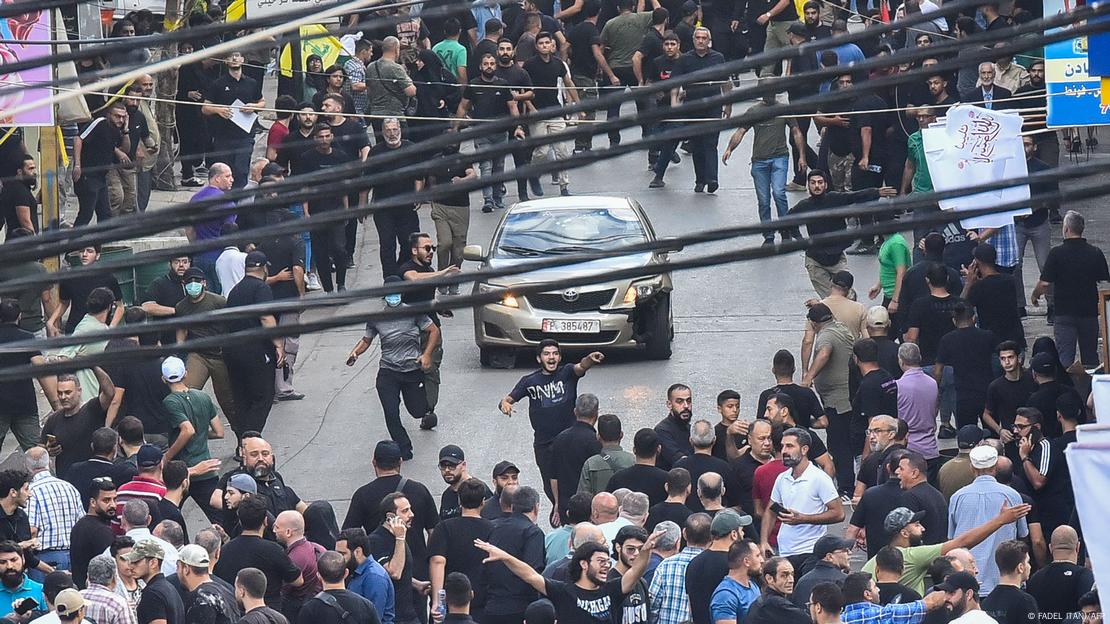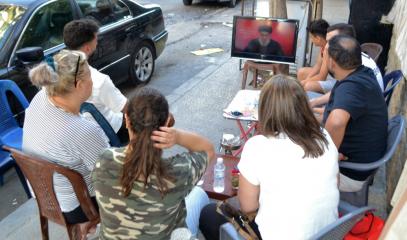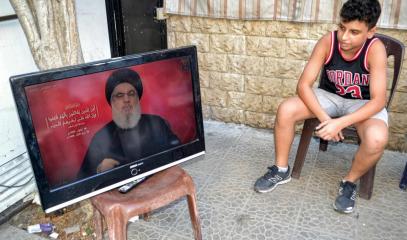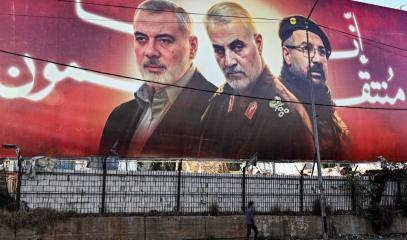Patriarch al-Rahi expresses deep sorrow over ‘Israeli aggression’
In a statement, the Maronite cardinal condemns the use of two-way devices "to kill indiscriminately" in the operation against Hezbollah. The provisional toll stands at 37 dead and 2,931 wounded, some seriously. Shia movement leader Nasrallah says the northern front will remain active until the end of the aggression in Gaza.
Beirut (AsiaNews) – The Maronite Church has expressed “deep sorrow" for the double Israeli aggression against Hezbollah and its people on 17 September and 18, which some do not hesitate to call “state terror”.
Simultaneous explosions of pagers killed 12 people on Tuesday, while a second wave of explosions the next day, this time targeting walkie-talkies, killed 25 people, according to the Lebanese Ministry of Health, bringing the death toll to 37 and 2,931 wounded over two days.
In an official statement, Patriarch Beshara al-Rahi strongly condemned the “Israeli aggression", in particular, booby-trapping radio-transmission devices "to kill indiscriminately".
The patriarch also condemned the aggression against the Palestinian people, knowing that in this regard the Maronite Church’s position is perfectly aligned with that of the Holy See, in favour of a two-state solution and a special status for Jerusalem.
In a televised address yesterday, marked by a terrifying supersonic double "bang" caused by Israeli planes flying at low altitude over the Lebanese capital, the secretary general of Hezbollah acknowledged that his party had received an "unprecedented" blow, promising Israel a "terrible" response without setting a time or place. "On the contrary," he said, "we must deeply hide our intentions.”
It was in the same spirit that he announced the opening of an internal investigation into the explosions, apparently aware that his party may have been infiltrated, as suggested by the Israeli daily Haaretz and The New York Times, which provided details about the Hungarian front company that allegedly manufactured the booby-trapped devices.
“You will not be able to bring the people of the north" home, Hassan Nasrallah told Israeli leaders, in response to their decision to include in the objectives of their war against Gaza the return to their homes of some 100,000 Israelis displaced by the fighting that broke out on the border with Lebanon.
“Lebanon's front with Israel will remain open until the end of the aggression in Gaza," he said.
In his address, Hassan Nasrallah joined the Maronite Patriarch in condemning an attack that targeted thousands of people carrying radio devices, with explosions in public places – pharmacies, hospitals, shops – and homes, killing civilians and military "indiscriminately".
Quoted by the daily L'Orient-Le Jour, the director of the Arab Reform Initiative think tank, Nadim Houry, said he was “stunned” by “the inability of Western public opinion to see these aggressions as terror.”
“Like the broad use of drone attacks, this type of operation makes us all more vulnerable by blurring the line between military and civilian targets. Would we accept that such indiscriminate attacks take place elsewhere?” he said.
For his part, General Khalil Helou (Ret) said on Thursday evening, on a television programme, that "the rules of engagement between Israel and Hezbollah have fallen after 11 months of conflict", and that "only Hezbollah respects them more or less".
“It is thanks to the control exercised by the Americans that Israel has not carried out a large-scale operation against Lebanon," the expert said.
On the human level
On a human level, the double aggression elicited an exceptional outpouring of solidarity. Hezbollah secretary general mentioned this human élan in his speech. “It seems that the blood drive that followed the Israeli aggression was the ‘largest in Lebanon's history,” he said.
The solidarity movement has also resulted in numerous regional medical missions. Hundreds of the wounded were moved to hospitals in Syria, Iraq, and Iran.
However, Israel’s war ruse has created a psychosis surrounding the use of mobile phones and even computers in the country, all fuelled by anonymous messages recommending to be wary of certain messages. . .
“I used to put my mobile phone on my bedside table," said Rima. “I placed it far from me, and on the floor, not even on the carpet, to avoid a fire in the event of an explosion.”
In accordance with a directive from Lebanon’s Directorate General of Civil Aviation, airlines have decided to ban passengers departing from Beirut airport from carrying pagers and walkie-talkies, both on their person and in their luggage, until further notice.
UN complaint
Meanwhile, Lebanese Foreign Minister Abdallah Bou Habib said that he would file a complaint with the UN Security Council.
Despite everything, in Lebanon itself, the outpouring of solidarity has not erased the deep cleavage between Hezbollah and the country’s other political groups representing Christians and Sunni Muslims over the advisability of opening a front with Israel.
In these circles, the war is considered "useless and risky", especially since the decision to launch it was taken unilaterally by the pro-Iranian party without any national or government consensus, in accordance with the Iranian military doctrine of the “unity of fronts", which also includes Iraq and Yemen.
“But does it have the right, as it seems, to sacrifice Lebanon for this unity?" said Fares Souhaid, a former MP who believes that Lebanon is currently “under Iranian occupation”.
01/03/2021 17:53
16/03/2021 12:56
28/07/2020 16:47
15/05/2019 16:35










.png)










